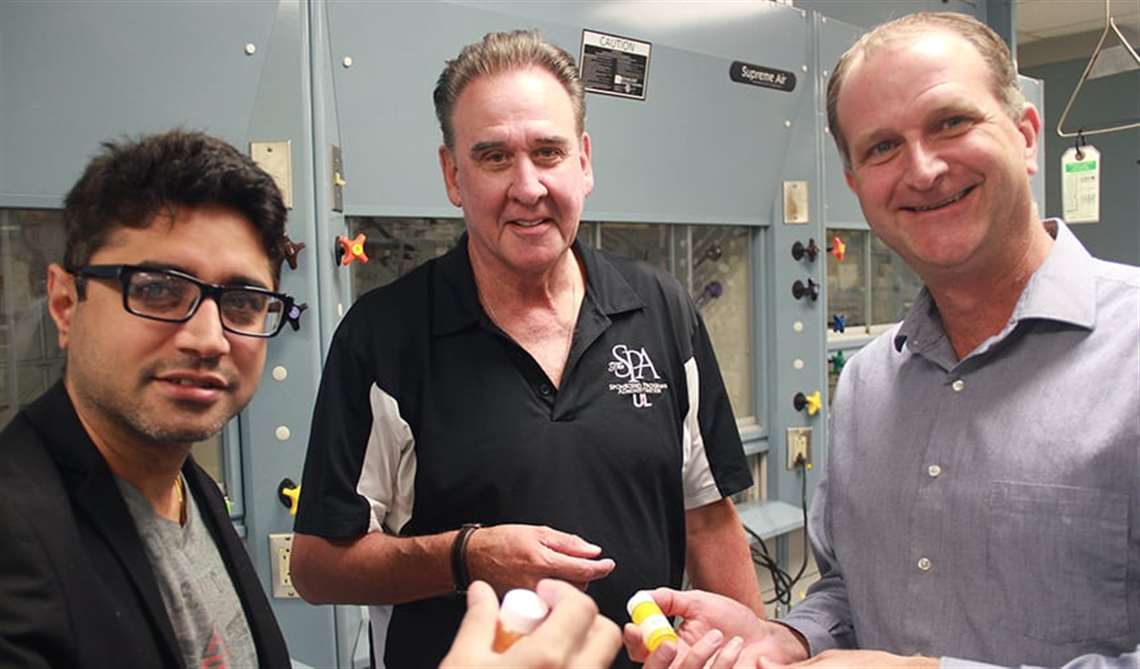Hydrogen Fuel Research Tests Sustainable Catalyst Development
23 August 2018

Scientists at the University of Louisville in Louisville, Ky., are working on a method to generate hydrogen fuels that significantly lowers energy use. This research on catalysts for hydrogen attracted combined funding of more than $1 million from the National Science Foundation (NSF) and Department of Energy (DOE).
Hydrogen, which is energy dense and the most abundant element in nature, serves as a promising alternative carbon-free fuel and is an essential building block for industrial and agricultural processes, said the university. Ninety-five percent of industrial hydrogen derives from unsustainable fossil fuel cracking.
NSF funding of the UofL team focuses on development of new catalyst materials for hydrogen evolution reactions, or water splitting, where the bond between hydrogen (H2) and oxygen is released. The current catalyst used in electrolyzers to produce H2 from water is platinum, which is expensive. The research tests materials that are inexpensive, abundant and sustainable, mirroring the process used by plants and bacteria to split water for food production.
The partnership is led by chemistry professors Robert Buchanan and Craig Grapperhaus, and Gautam Gupta, associate professor of chemical engineering in the J.B. Speed School of Engineering. Grapperhaus was funded $450,000 for three years to benchmark homogeneous H2 evolving catalysts. In addition, Gupta is funded by DOE at $130,000 for one year. More recently, Buchanan and Gupta received $474,400 over three years to translate molecular catalysts to electrode surfaces.
“Hydrogen is a promising high efficiency fuel,” said Buchanan. “Efficient molecular catalysts for H2 production from acidic aqueous solutions are rare and expensive. We are excited to translate our chemistry toward making hydrogen competitive with conventional fuels while reducing environmental impacts of production.”
Most hydrogen produced in the U.S. is used to refine petroleum, treat metals, produce fertilizer and process foods. Lowering the cost of production is a key to widespread use as a motor vehicle fuel, for instance, said the university.
“Molecular electrocatalysts address our grand challenge on hydrogen generation,” said Mahendra Sunkara, director of Conn Center for Renewable Energy Research at the University of Louisville. “This collaborative effort compliments our efforts in inorganic electrocatalysts and semiconductor development.”
POWER SOURCING GUIDE
The trusted reference and buyer’s guide for 83 years
The original “desktop search engine,” guiding nearly 10,000 users in more than 90 countries it is the primary reference for specifications and details on all the components that go into engine systems.
Visit Now
STAY CONNECTED




Receive the information you need when you need it through our world-leading magazines, newsletters and daily briefings.
CONNECT WITH THE TEAM












